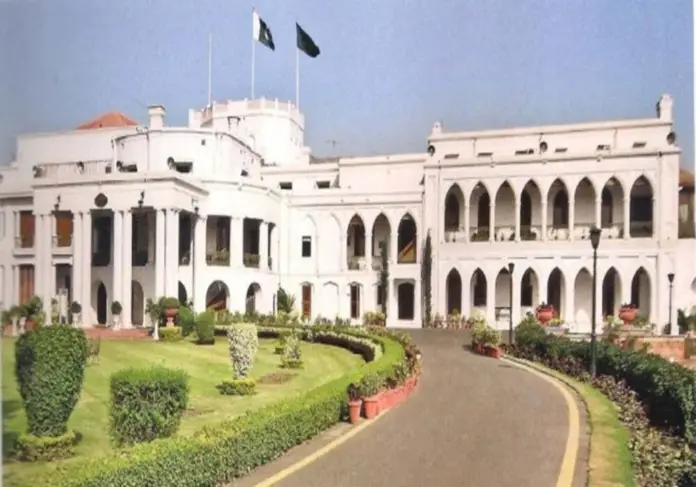Surprisingly enough, Pakistani bureaucrats draw huge salaries and perks, even more than the UN officers, according to a recently disclosed report of the Pakistan Institute of Development Economics (PIDE). More shockingly, the state-run think tank reveals that only federal housing assets in the capital have a market value of about Rs1.45 trillion.
“This is the residential value of the assets, and if used for commercial purposes, the value would be significantly higher. They can generate Rs11 billion per year in rent,” the document adds.
World Bureaucracy Indicators of the World Bank say that the public sector wages in Pakistan are 53 percent higher than the private sector take-home pays. But perks and privileges are not linked to performance and efficiency.
Since the creation of Pakistan in 1947, the motherland experienced 29 commissions on civil service reforms; Ishrat Hussain, the last one, all thrived with little outcomes. The report also trumpets the generous pension system in Pakistan. Usually, pension is calculated as 70 percent of the last running basic pay, but in some cases, it exceeds 122 to 140 per cent. After a person retires from service, at least 13 heirs after his death can claim family pension, including wife, unmarried daughter, underage children, widowed or divorced daughter and disabled child. Moreover, it doubles when a retiree reaches the age of 75 years. Thus, the taxpayers have to pay more than Rs760 billion in terms of pays and allowances only. The huge amount of pension is in addition to this.
Max Weber on bureaucracy remarked that the ongoing bureaucratisation was leading to a “polar night of icy darkness”. However, he also pays tribute to bureaucracy on the ongoing rationalisation of Western society.
Likewise, the Obama administration had passed the Dodd-Frank Act and many critics called it red tape, because it, as they asserted, slowed down the speedy economic growth for different companies. It is to be recalled that the law was adopted by Congress after the Great Recession of 2008, to defend people against Wall Street and mortgage companies from taking any advantage.
Red tape generally includes filling out paperwork, obtaining licences, having multiple people or committees approve a decision and various low-level rules that make conducting one’s affairs slower, more difficult. All these regulations are to be termed as ‘curate’s eggs’, partly good and partly bad.
Dr. Ishrat Hussain without finalising the task assigned to him back in 2018 resigned from office. Dr. Hussain has enjoyed the status of a federal minister since August 2018. He was also heading an Institutional Reforms Cell (IRC) at the PM Office to support the task force on civil service reforms, restructuring of government and austerity.
Dr. Hussain along with his committee travelled across the country, conducted some 80 extensive sessions with 2,223 officers of all services, including Pakistan Administrative Service (PAS), Police Service of Pakistan (PSP), customs, military lands, provincial management services and others. Millions of rupees of the government were spent on the exercise.
However, the rotation policy 2000 for both PAS and PSP officers was modified and replaced in 2020 and implemented in 2021 to a great extent. The purpose was posting of federal officers across the country in the federating units against the sanctioned strength before they escalate to higher echelons of their carriers.
As the federal information minister asserts that the incumbent government has to refund loan-related instalments to the tune of $60 billion during five years, it would be very hard for taxpayers to afford certain luxuries, even to those who had no interest in the country or service delivery. Due to pandemic, corruption, red-tapism, poor production and fewer exports and sky-rocketing inflation and dollar flight, all factors have tightened the prospects for the common man.
Without introducing a strict monitory mechanism, involving information technology tools, initiating target-oriented programmes and taking strict austerity measures, it would also be hard for the democratic government to meet all these rising expenses. However, the government departments’ functioning in a way depends on the deepening of democracy and the way the system is enforced to respond to the needs of people with key performance indicators (KPIs). The purer the democratic institutions, the richer will be its organisational delivery system. The prime minister’s portal, though, in a way, was a good initiative but it also lost its integrity as many complaints fell on the deaf system with no mechanism to resolve issues.
All the officers who do not shirk their responsibilities are not to be blamed. There are many exceptional PAS/PSP officers who work diligently, but there are just as many who don’t. A good number of them keep their distance from the public who visit them for redressal of their issues. As you go down the hierarchical ladder, egotism goes up. Society has become tolerant to inefficiency and corruption that it is up to officers whether to work or not, despite full pays and perks ensured to them till death. The sluggish, corrupt and inefficient officers are hardly scrutinised; rather, they rapidly climb the ladder of promotion to higher grades.
As the officers are frequently transferred on political grounds, thus the output of departments suffers due to a shortage of time to understand matters. Therefore, the tenure of the officers should be protected at all costs. There is a class of officers who always use political or ‘other’ crunches to get a posting of their choice; they resist change in the system. The only solution is the use of technology, e-governance and mechanism with KPIs (key performance indicators) to tackle severe problems.
In the age of specialisation, the need is to post revenue officers in such organisations that collect money and so on. As it is said that generalism, in a way, is a remnant of colonialism, the need is to shatter the colonial mindset among officialdom.
Captain (retd) Mehmood, a PAS officer, had been posted managing director to run the Nandipur power project, whose cost rose to a crescendo. Under Mehmood’s supervision, the plant had stopped functioning soon after it was inaugurated in May 2014. He had also reportedly refused to sign a contract with Chinese firm Dongfang to operate the plant for six months. It was also alleged that he was trying to bypass the board of directors to award a Malaysian firm the operation and maintenance contract at higher rates, and for an extended period. Later, during his posting as Rawalpindi division commissioner, he was arrested by the NAB. Former DC Lahore and Lahore Development Authority director-general Ahad Khan Cheema can be cited here as another example. He was a PAS officer who was later arrested by the anti-graft giant on corruption charges.
To sum it all up, without bridging the distance between administration and officialdom and connecting the pay and performance, the political governments will continue to face the major problem of non-delivery to the masses promised by them in manifestos. The PTI premier Imran Khan should, at least, complete his long-due agenda of bureaucratic reforms; otherwise, it would be nothing more than putting square pegs in round holes.







